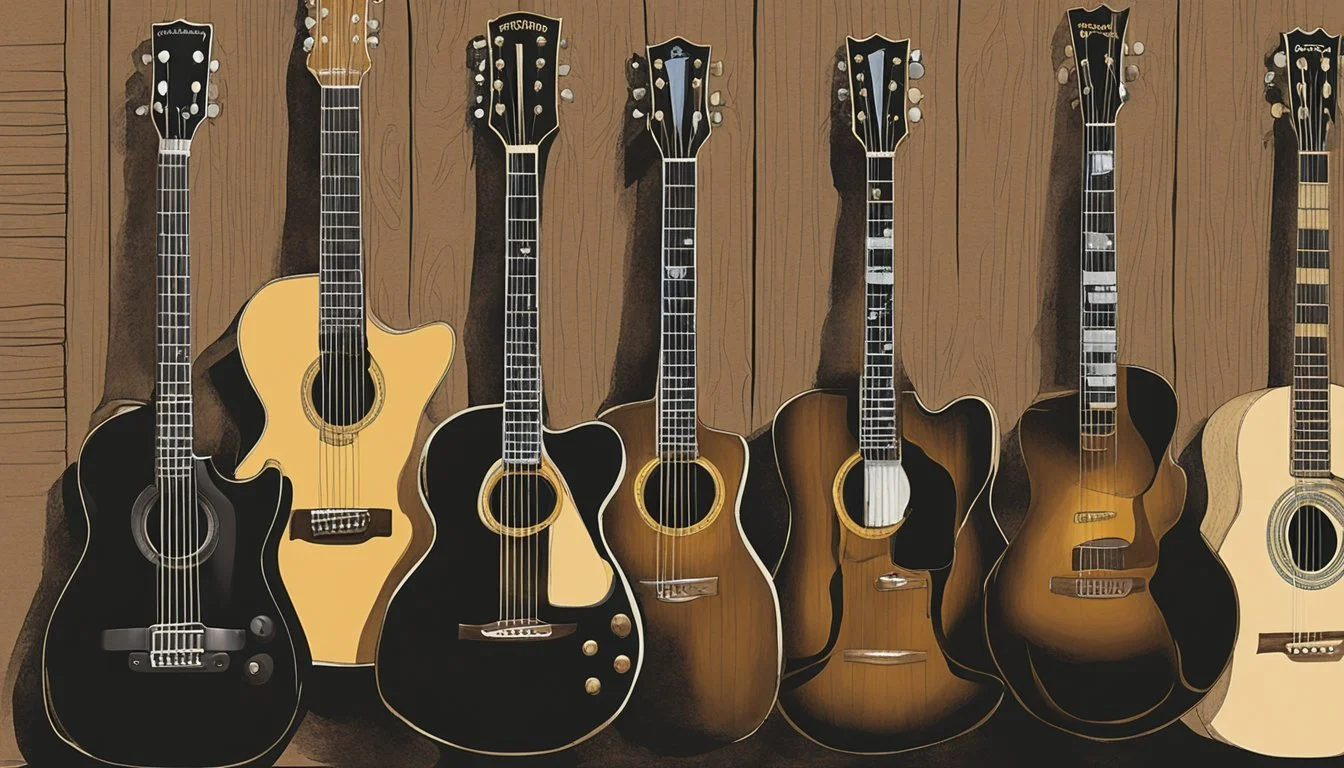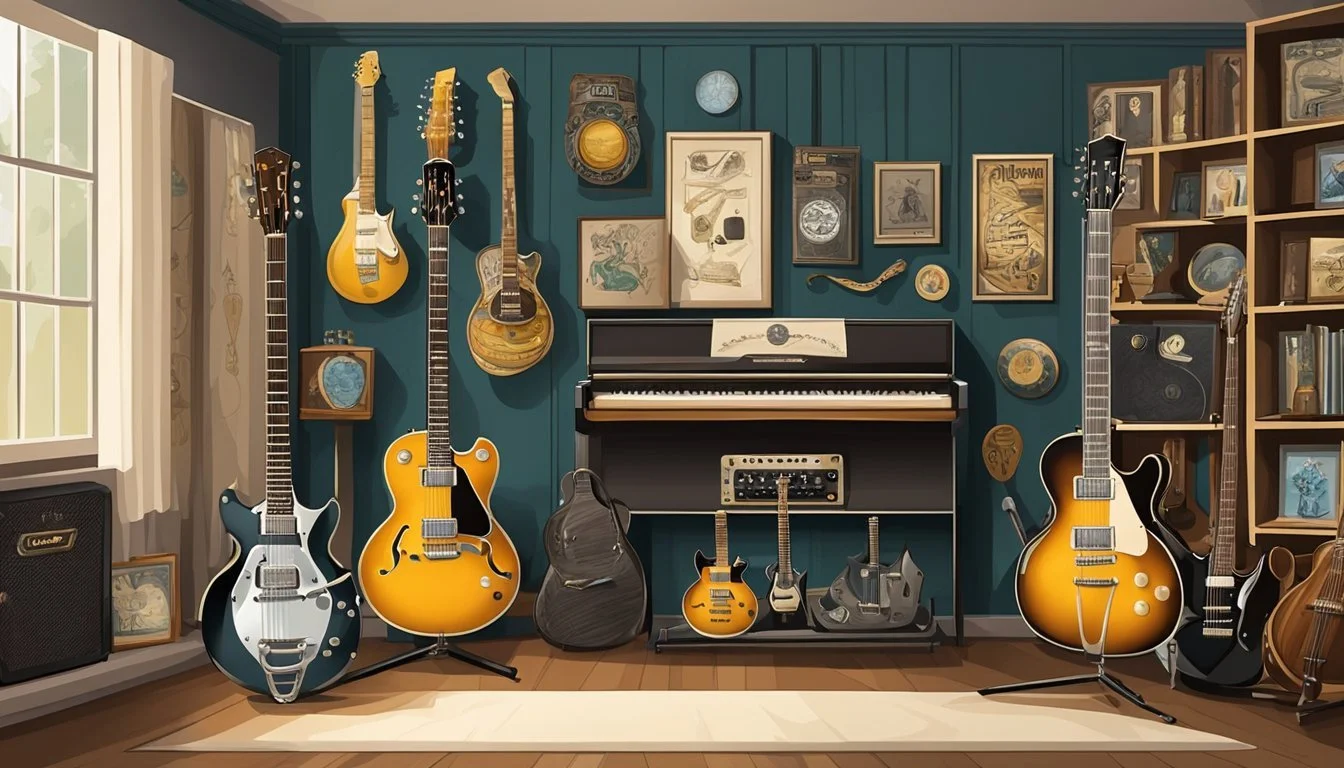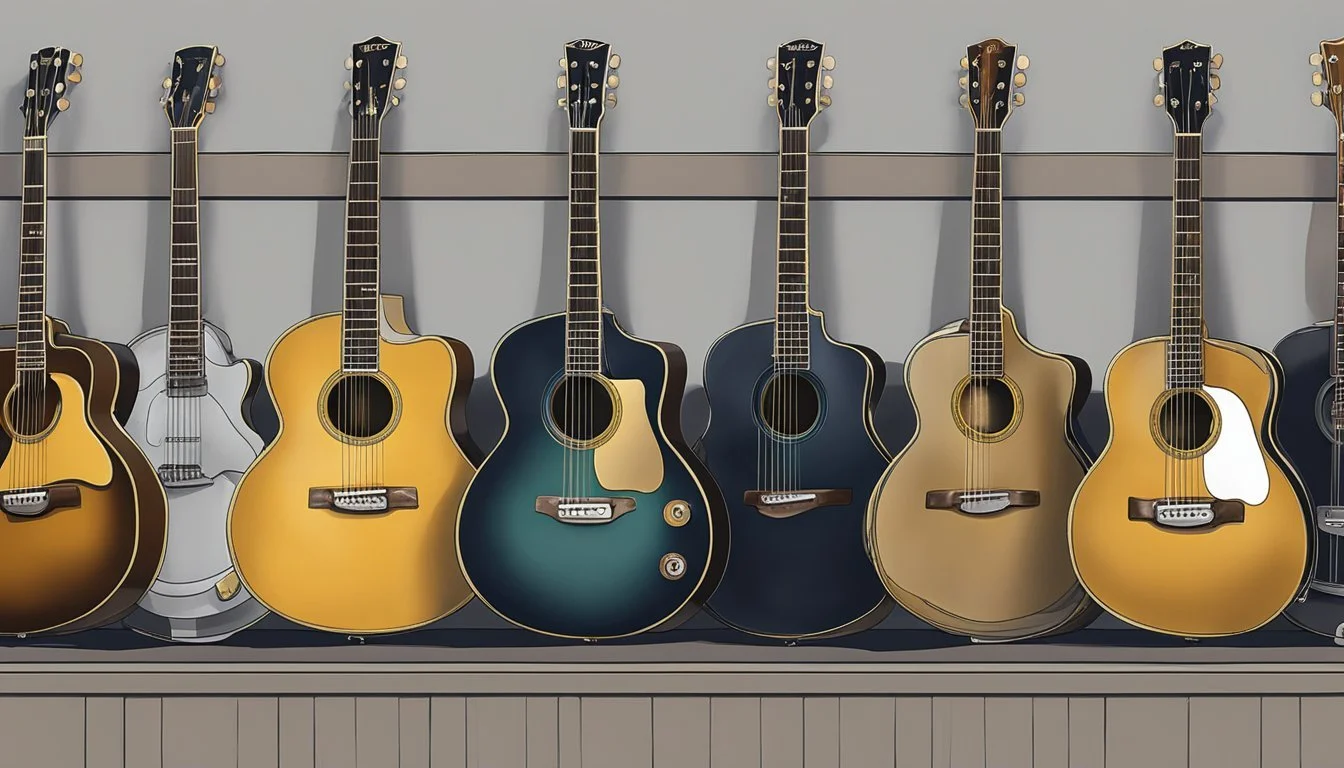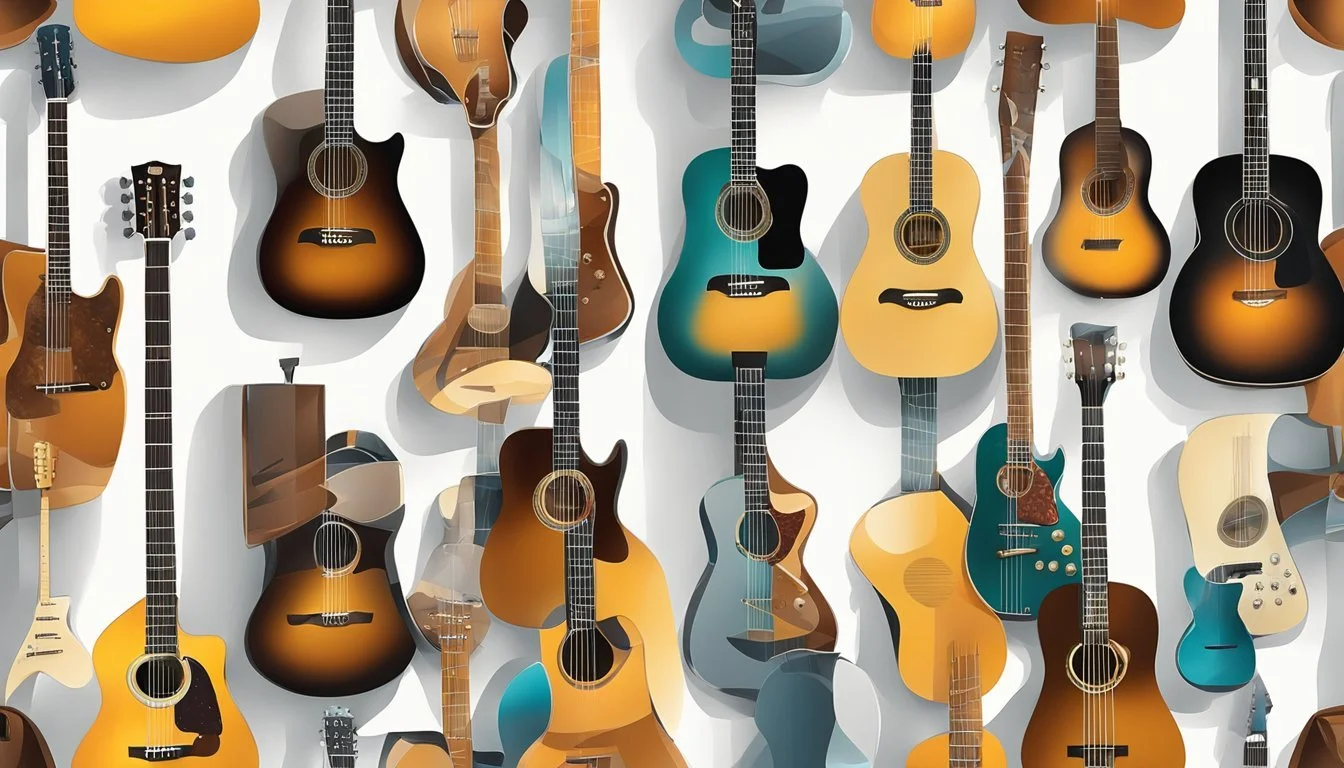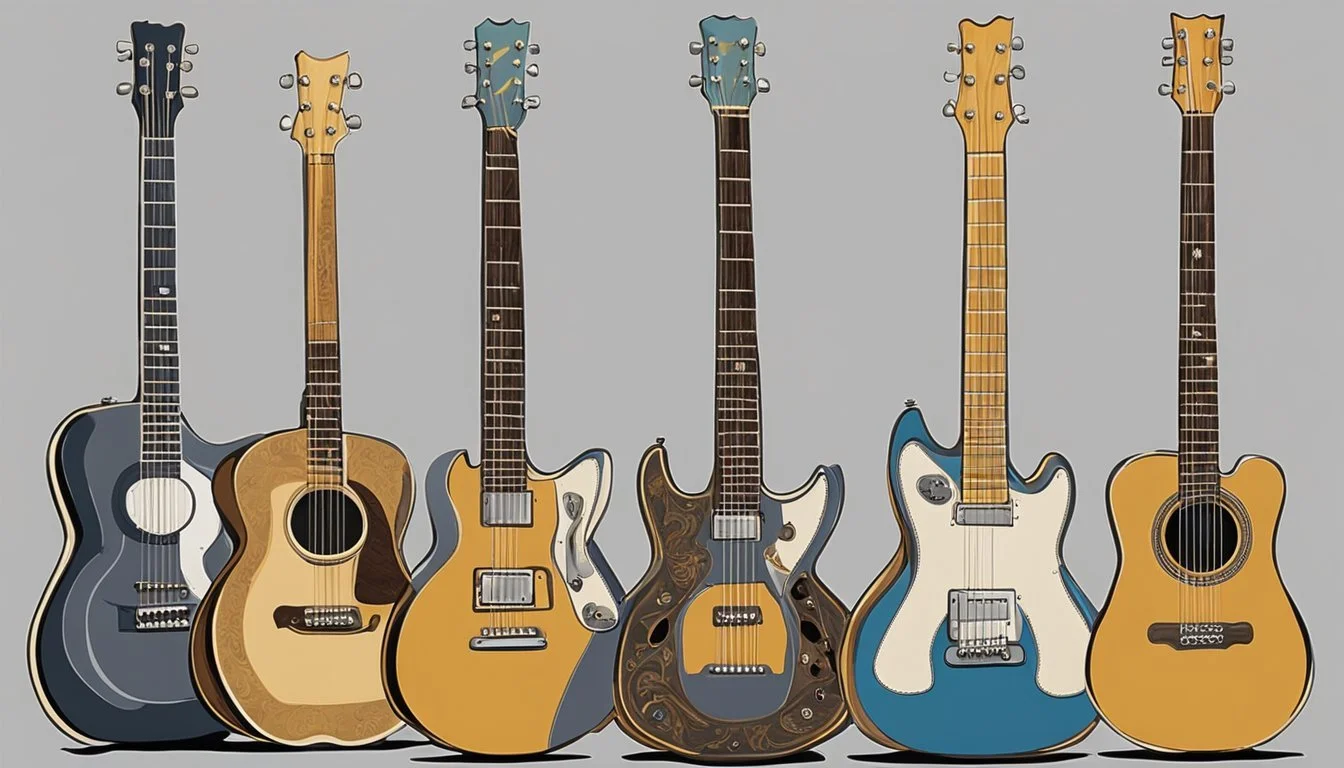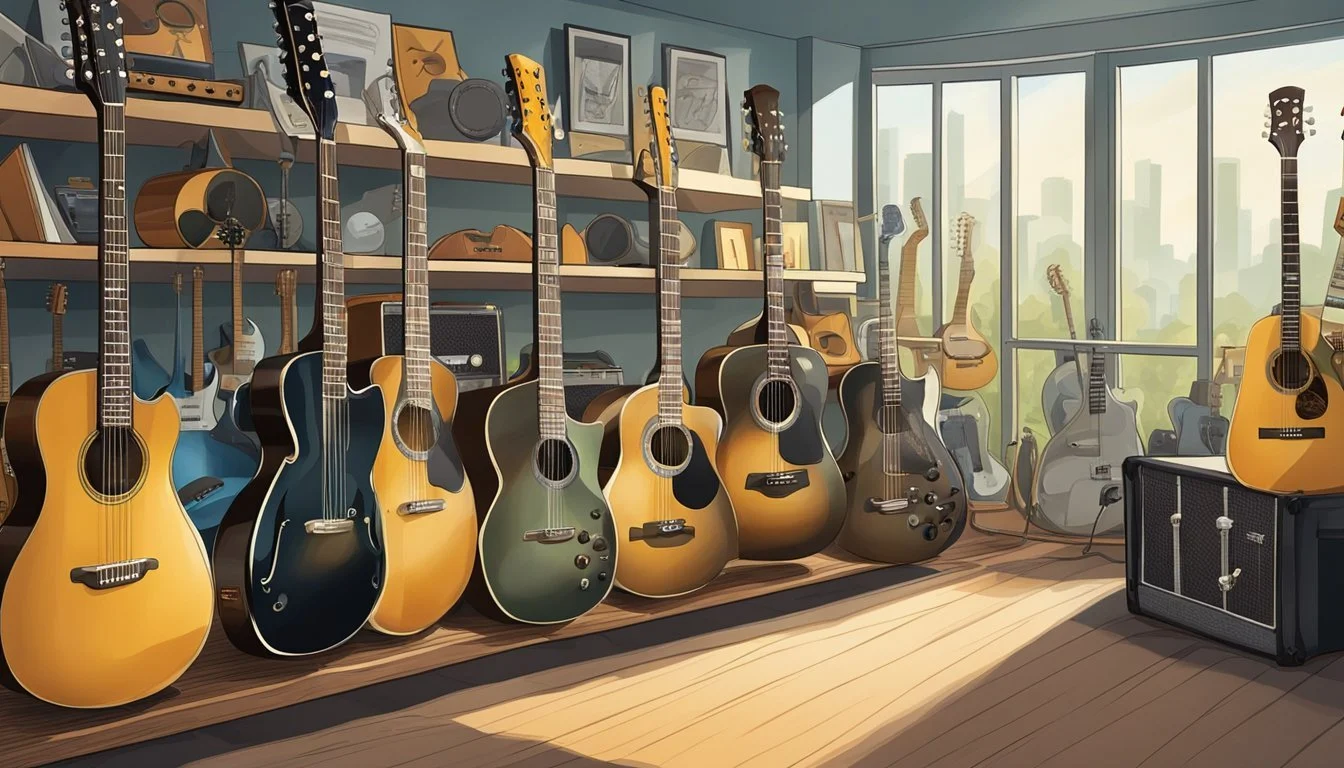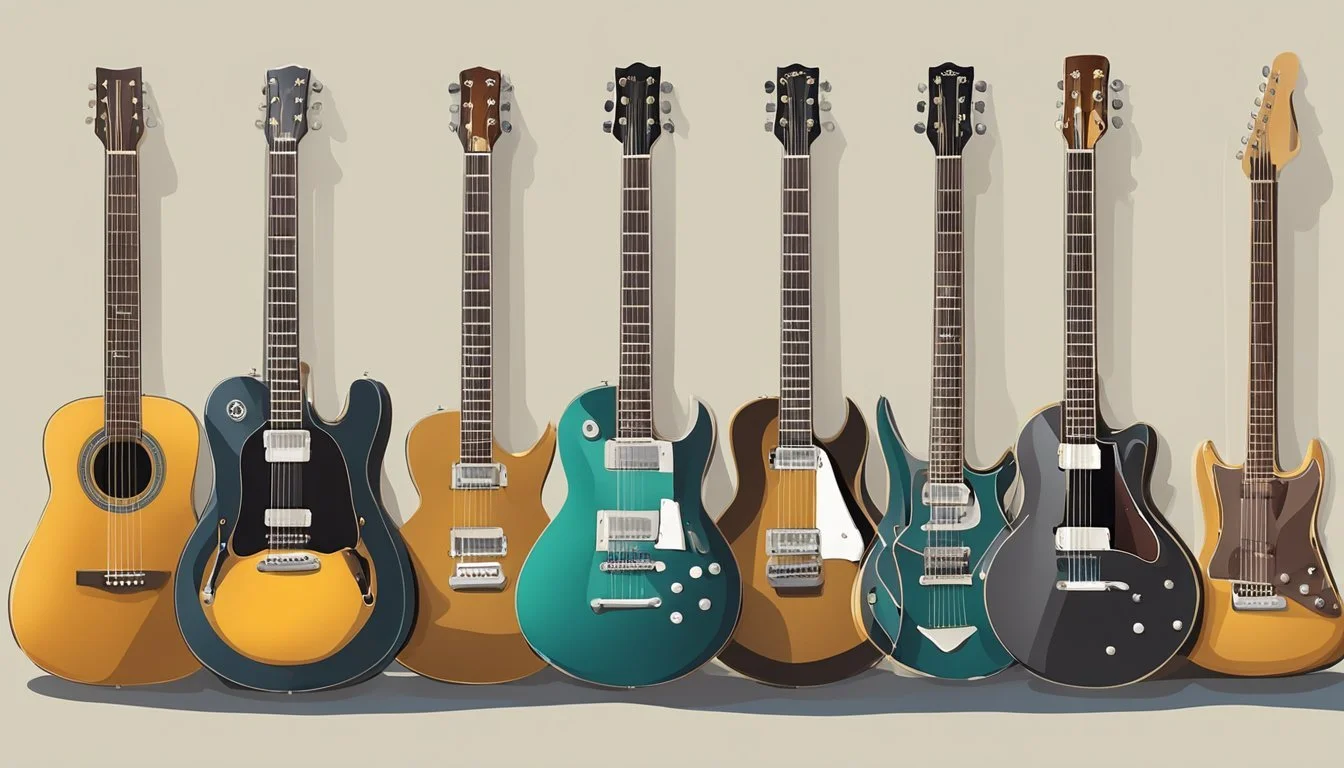Willie Nelson's Guitar Collection: The Legendary Story of Trigger
Willie Nelson, the iconic country music legend, is renowned for his distinctive sound and signature guitar. While many musicians rotate through multiple instruments, Nelson has remained remarkably loyal to a single guitar for over five decades. Nelson primarily plays one guitar - a 1969 Martin N-20 classical acoustic he affectionately named "Trigger."
Trigger has been Nelson's constant companion since 1969, appearing on countless albums and accompanying him at thousands of live performances. The guitar's worn appearance, with a large hole in its body, tells the story of Nelson's long and storied career. This instrument has become as much a part of Willie Nelson's image as his braided hair and bandanas.
Though Nelson has undoubtedly owned other guitars throughout his life, none have achieved the same legendary status as Trigger. This Martin N-20 has played a crucial role in shaping Nelson's unique sound and style, contributing significantly to his impact on American music. The tale of Willie Nelson and Trigger serves as a testament to the deep connection that can form between a musician and their instrument.
Willie Nelson and Trigger
Willie Nelson's relationship with his guitar Trigger is legendary in country music. This Martin N-20 has been Nelson's constant companion for over five decades, shaping his signature sound and becoming an icon in its own right.
The Story of Trigger
Willie Nelson acquired Trigger in 1969 after his previous guitar was damaged. He named it after Roy Rogers' horse. The guitar was originally a standard Martin N-20 classical acoustic model. Nelson modified it by adding a pickup from his old Baldwin guitar, allowing him to amplify its sound for live performances.
Trigger quickly became Nelson's primary instrument. He refused to part with it, even as it accumulated wear and tear over the years. The guitar's distinctive tone and Nelson's unique playing style became inseparable elements of his music.
Specifications of Trigger
Trigger is a Martin N-20 classical guitar with a Sitka spruce top and Brazilian rosewood back and sides. It features a mahogany neck and an ebony fretboard. The guitar has nylon strings, which contribute to its mellow tone.
Nelson's modifications include the addition of a Baldwin pickup. This alteration allows him to amplify the guitar's sound while maintaining its acoustic qualities. The guitar's body has a large hole worn through the top from years of Nelson's picking.
The Relationship Between Nelson and His Iconic Guitar
Willie Nelson's bond with Trigger is unparalleled in music history. He's played it on countless recordings and live performances since 1969. Nelson often refers to Trigger as an extension of himself.
The guitar's deteriorating condition reflects Nelson's long career. Despite offers to replace it, he remains committed to Trigger. Nelson has said, "When Trigger goes, I'll quit." This statement underscores the deep connection between the artist and his instrument.
Trigger's unique sound has become integral to Nelson's music. Its nylon strings and worn body produce a distinctive tone that fans instantly recognize. The guitar is not just an instrument but a symbol of Nelson's enduring career and musical legacy.
The Collection Beyond Trigger
Willie Nelson's guitar collection extends beyond his iconic Trigger. While Trigger remains his primary instrument, Nelson owns and occasionally plays other guitars that contribute to his diverse musical repertoire.
Additional Guitars Owned by Willie Nelson
Nelson possesses several notable guitars alongside Trigger. He owns a Martin D-28 acoustic guitar, which he has used for recording sessions and live performances. The D-28's rich, full-bodied tone complements Nelson's vocals on certain songs.
Another guitar in his collection is a Gibson L-5, an archtop jazz guitar. This instrument pays homage to Nelson's admiration for Django Reinhardt, the legendary gypsy jazz guitarist. The L-5's warm, mellow sound is well-suited for jazz-influenced compositions.
Nelson also keeps a vintage Fender Stratocaster in his arsenal. This electric guitar allows him to explore different tonal possibilities, particularly in studio settings where versatility is key.
Importance of Diversity in Guitar Sounds
Nelson's varied guitar collection reflects his musical versatility. Each instrument offers unique tonal characteristics, allowing him to craft specific sounds for different songs or genres.
The classic guitar tones of his Martin acoustics provide a foundation for his country and folk-inspired works. The Gibson L-5 enables Nelson to delve into jazz territory, showcasing his diverse musical influences.
Electric guitars like the Stratocaster give Nelson the ability to experiment with rock and blues-inspired sounds. This tonal diversity enhances his recordings and live performances, giving audiences a rich auditory experience.
By utilizing different guitars, Nelson can tailor his sound to each song's requirements, demonstrating his musical adaptability and commitment to sonic exploration.
Historical and Cultural Significance
Willie Nelson's guitar Trigger has become an iconic symbol in country music, representing both the artist's enduring career and the genre's evolution. This instrument has played a crucial role in shaping Nelson's unique sound and image.
Trigger's Impact on Music History
Trigger, Willie Nelson's 1969 Martin N-20 classical guitar, has left an indelible mark on music history. Its distinctive tone has become synonymous with Nelson's signature style, influencing countless musicians across genres. The guitar's worn appearance, with its famous hole, tells the story of Nelson's decades-long career and countless performances.
Trigger has been featured on numerous hit records, including the groundbreaking album "Red Headed Stranger." This guitar's sound helped define the Outlaw Country movement of the 1970s, challenging Nashville's polished production style with a more raw, authentic approach.
Willie Nelson's Place in Country Music Lore
Willie Nelson's relationship with Trigger has cemented his status as a country music legend. Their partnership spans over five decades, making Trigger as recognizable as Nelson himself. This dedication to a single instrument is rare in the music industry and has contributed to Nelson's image as an authentic, no-frills artist.
Nelson and Trigger's induction into the Country Music Hall of Fame highlights their cultural significance. The guitar's presence in the museum serves as a testament to Nelson's impact on country music and American culture at large. Trigger's survival through Nelson's financial troubles and IRS battles further emphasizes its importance to the artist and his enduring legacy in music history.
The Anatomy of Willie Nelson's Guitars
Willie Nelson's guitars are iconic instruments that have shaped his distinctive sound. His most famous guitar, Trigger, is a Martin N-20 with unique modifications and a rich history.
Craftsmanship of the Martin N-20
The Martin N-20 is a classical acoustic guitar known for its exceptional craftsmanship. It features a Sitka spruce top, prized for its resonance and tonal qualities. The back and sides are crafted from Brazilian rosewood, contributing to the guitar's warm, rich sound.
The neck is made of mahogany, providing stability and sustain. An ebony fretboard offers durability and a smooth playing surface. The N-20's classical-style bridge is also constructed from ebony.
Martin's attention to detail is evident in the guitar's hand-fitted dovetail neck joint and carefully selected tonewoods. This meticulous construction results in an instrument with superior sound projection and tonal balance.
Unique Features of Nelson's Guitars
Willie Nelson's guitars, particularly Trigger, have several distinctive characteristics. Trigger sports a pickup from Nelson's previous Baldwin guitar, allowing for amplification while maintaining its acoustic qualities.
The most noticeable feature is the large hole worn through the spruce top from years of playing. This opening affects the guitar's resonance, creating Nelson's signature sound.
Nelson's guitars often have lowered action - the distance between strings and fretboard - for easier playing. The frets on Trigger have worn down over time, further contributing to its unique feel and sound.
Nelson's guitars typically use nylon strings, which are gentler on the fingers and produce a softer tone than steel strings. This string choice complements his fingerpicking style and vocal performances.
Technological Aspects
Willie Nelson's guitars incorporate innovative pickup technologies that shaped his distinctive sound. These advancements allowed him to amplify his acoustic instruments effectively for live performances.
Evolution of Guitar Pickups in Nelson's Collection
Willie Nelson's guitars feature evolving pickup technologies. His Baldwin guitar included a Prismatone pickup, an early stereo system for acoustic amplification. This pickup provided a unique sound that Nelson appreciated.
When Nelson acquired his famous Martin N-20 "Trigger," he had the Baldwin's Prismatone pickup installed in it. This modification allowed him to maintain the sound he loved while playing a guitar with better playability.
Over time, Nelson experimented with different pickup configurations to achieve his desired tone. He worked closely with guitar technicians to refine the sound of his instruments.
Piezo Pickup and Baldwin 800C
The Baldwin 800C guitar Nelson played early in his career featured a piezo pickup. This technology converts string vibrations directly into electrical signals.
Piezo pickups offer a more natural acoustic sound when amplified. They capture the nuances of string movement and body resonance effectively.
Nelson's experience with the Baldwin 800C influenced his later guitar modifications. He appreciated the clear, detailed sound that piezo technology provided.
The combination of piezo elements and the Prismatone system in Trigger created a unique tonal palette. This setup allowed Nelson to achieve his signature sound in both studio recordings and live performances.
Role of Guitars in Live Performances
Willie Nelson's guitar plays a central role in his live shows, becoming an iconic part of his stage presence. His main instrument, Trigger, has been a constant companion for over five decades of touring and performances.
On the Road and Live Shows
Willie Nelson's guitar is a crucial element of his live performances. He begins most shows by strapping on Trigger and launching into fan favorites. The distinctive sound of his nylon-stringed classical guitar cuts through even in large venues. Nelson's intimate connection with his instrument is evident as he effortlessly moves between intricate fingerpicking and strumming.
During concerts, Willie often showcases extended guitar solos, demonstrating his unique playing style. His performances at John T. Floore's Country Store, a historic Texas venue, have become legendary. These shows highlight the raw, authentic sound of Nelson's guitar work.
Farm Aid and Social Influence
Willie Nelson's guitar has been front and center at Farm Aid concerts since 1985. These benefit shows feature Nelson performing his hits and collaborating with other artists. His guitar work during "On the Road Again" has become a signature moment at these events.
The image of Nelson with his battered guitar has become synonymous with his advocacy for family farmers. His performances at Farm Aid have helped raise millions of dollars and awareness for agricultural issues. The guitar's visible wear tells a story of Nelson's long career and dedication to his causes.
Relationship with Other Country Music Stars
Willie Nelson's connections in the country music world run deep, spanning decades of friendships and musical partnerships. His relationships with fellow artists have shaped his career and influenced the genre as a whole.
Musical Collaborations
Willie Nelson has collaborated with numerous country stars throughout his career. He formed the supergroup The Highwaymen with Johnny Cash, Waylon Jennings, and Kris Kristofferson in 1985. This alliance produced three albums and multiple hit singles.
Nelson and Waylon Jennings had a particularly close bond, often performing together and releasing duet albums. Their friendship helped define the outlaw country movement of the 1970s.
In 1978, Nelson teamed up with Leon Russell for the album "One for the Road," showcasing their shared love for classic country and western swing.
Shared Influence with Peers
Willie Nelson's impact on country music is intertwined with that of his contemporaries. He and Johnny Cash shared a mutual respect, often covering each other's songs and appearing on each other's television shows.
Kris Kristofferson has credited Nelson as a major influence on his songwriting. The two have maintained a close friendship for over five decades, frequently performing together.
Nelson's admiration for Roy Rogers dates back to his childhood. He later paid tribute to the singing cowboy by recording Rogers' signature song "Happy Trails" for a tribute album.
These relationships have not only enriched Nelson's career but have also contributed to the evolution of country music as a whole.
Preservation Efforts and Challenges
Willie Nelson's guitars, especially his beloved "Trigger," have faced numerous preservation challenges over the years. These iconic instruments require constant care and have even survived potentially catastrophic events.
The IRS Incident
In 1990, the IRS seized Willie Nelson's assets due to unpaid taxes. Fearing Trigger would be taken, Nelson's daughter Lana snuck the guitar out of his home and sent it to Hawaii for safekeeping. This bold move ensured the survival of Nelson's most prized possession during a tumultuous period. The guitar remained hidden for months until Nelson resolved his tax issues and could safely retrieve it.
Continuous Care for Aging Instruments
Willie Nelson's guitars, particularly Trigger, undergo regular maintenance to keep them playable. Mark Erlewine, a renowned luthier in Austin, Texas, performs annual repairs on Trigger. These maintenance sessions address issues like worn frets, loose braces, and cracks in the wood. Despite its battered appearance, Trigger's sound remains intact due to these preservation efforts.
Erlewine has described Trigger as an extension of Willie Nelson himself. The guitar's unique tone, shaped by years of wear and Nelson's playing style, is carefully preserved during each repair session. This meticulous upkeep ensures that Nelson can continue performing with his iconic instrument for years to come.
Willie Nelson's Influence on Modern Guitarists
Willie Nelson's unique guitar style has left an indelible mark on countless musicians. His distinctive fingerpicking technique on his trusty Martin N-20, affectionately named Trigger, has inspired generations of guitarists.
Nelson's influence extends beyond country music, permeating various genres. His minimalist approach to playing emphasizes melody and rhythm over flashy solos, encouraging guitarists to focus on musicality rather than technical prowess.
The Austin Music Scene, in particular, owes much to Nelson's pioneering spirit. His blend of country, jazz, and folk helped shape the city's eclectic musical landscape, inspiring local guitarists to experiment with diverse styles.
Nelson's use of an acoustic-electric guitar in live performances revolutionized the way guitarists approach amplification. This setup allows for the warm tone of an acoustic guitar while providing the necessary volume for large venues.
Many contemporary guitarists strive to emulate Nelson's signature guitar sound. His percussive picking style and use of open chords create a rich, full-bodied tone that has become synonymous with Americana music.
Nelson's influence can be heard in the playing of artists like John Mayer, Jason Isbell, and Sturgill Simpson. These musicians have adopted elements of Nelson's style, incorporating his relaxed phrasing and emotive playing into their own work.

